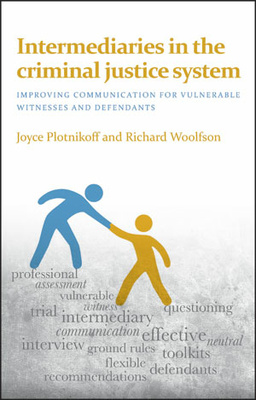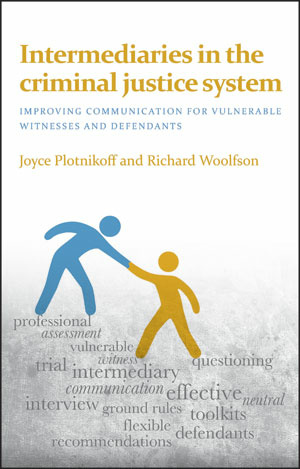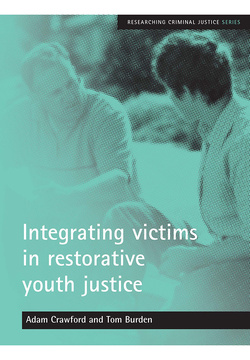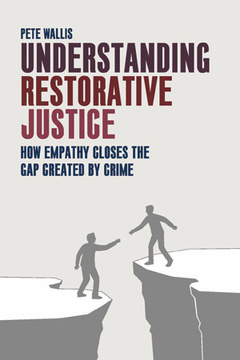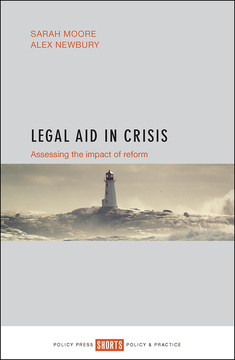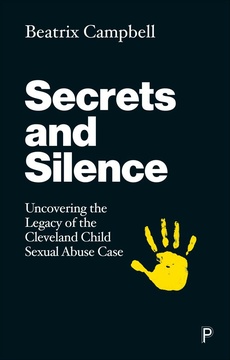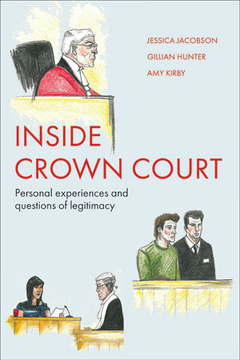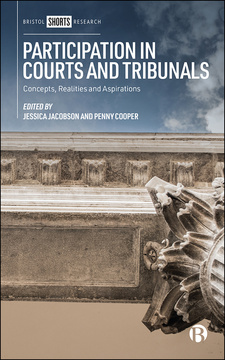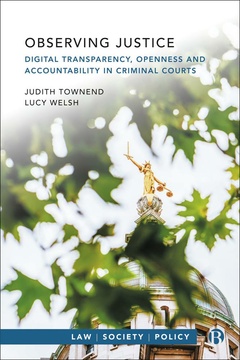Intermediaries in the Criminal Justice System
Improving Communication for Vulnerable Witnesses and Defendants
By Joyce Plotnikoff and Richard Woolfson
Published
Jun 16, 2015Page count
352 pagesISBN
978-1447326069Dimensions
216 x 138 mmImprint
Policy PressPublished
Jun 16, 2015Page count
352 pagesISBN
978-1447326083Dimensions
Imprint
Policy PressPublished
Jun 16, 2015Page count
352 pagesISBN
978-1447326090Dimensions
Imprint
Policy PressThis is the first book about the intermediary scheme, criminal justice’s untold ‘good news story’. Intermediaries are independent communication specialists who assist children and vulnerable adults at police interviews and trials, helping to improve the quality of their evidence and providing access to justice for those who previously had been excluded. Richly illustrated with case examples through intermediaries’ own descriptions of their work, the book also includes feedback from justice system personnel and over 70 judges.
This unique book provides a comprehensive explanation of how intermediaries work in practice and gives ‘behind the scenes’ insights into the criminal process. It will be of interest to practitioners and the wider public in England and Wales and encourage consideration of the scheme elsewhere.
Joyce Plotnikoff DBE and Dr Richard Woolfson have conducted vulnerable witness research for over 20 years. Joyce is a lawyer, social worker and expert adviser to the Judicial College. Richard started out as a mathematician. He was formerly a magistrate; member of the Civil Justice Council’s Access to Justice subgroup; and chair of his local Courts Board and Crown Prosecution Service Local Scrutiny Involvement Panel. They co-founded www.theadvocatesgateway.org, launched in 2013.
Introduction: a fresh pair of eyes;
The intermediary scheme in England and Wales;
Behind the scenes: planning to assess the witness;
Assessment methods and involvement of the interviewer;
Communication aids and stress reduction strategies;
Contributing to the effectiveness of the police interview;
Negotiating professional space at the ground rules hearing;
Making the ground rules hearing effective;
‘Every reasonable step’: preparation for giving evidence;
Cross-examination: research, case law, training and regulation;
Cross-examination: intervention at trial;
Cross-examination: challenges at the cutting edge;
The uneasy position of vulnerable defendants;
A new profession;
Conclusion.







